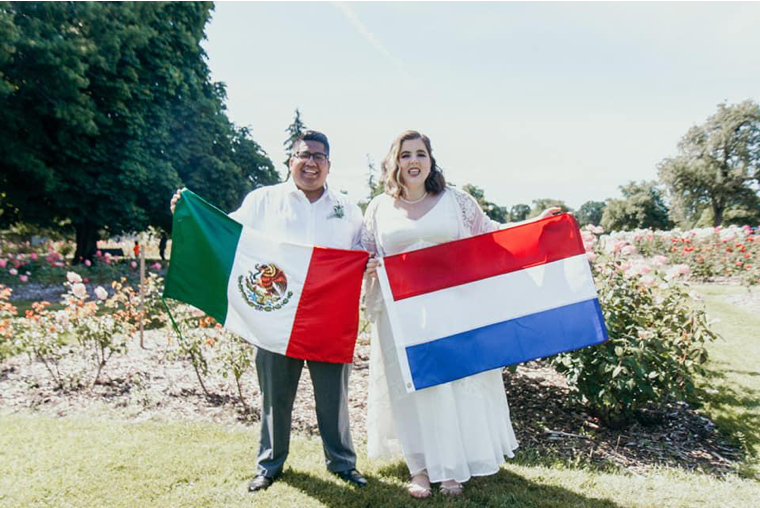Hugo Nicolas’s Story
When Nicolas was 11, his mother told him and his two younger siblings that they would travel to the U.S. to join their father, who was an undocumented farmworker. He remembers walking for two days to cross the border.
He was dehydrated and exhausted, but only later in his life, he realized how dangerous and risky crossing the border had been. His family traveled from Veracruz, Mexico to Salem, OR, where his uncle, who was a documented citizen, lived. In Salem, there were also valuable agricultural opportunities.
Getting Involved In His Community
Throughout his childhood and into his young adult life, Nicolas kept his undocumented status secret. In high school, he worked hard to involve himself in his community. He hoped that through his efforts he could prove himself and receive citizenship. This inspired him to become a police cadet and a fire explorer, volunteer over 100 hours a month, and push himself academically.
In 2011, Nicolas was the McNary High School graduation speaker. At the time of graduation, he did not feel like “anything was possible.” Still, this is what he told his classmates. Hugo said that if you put the effort in and work hard, you can make your American Dream come true.
Poor Working Conditions For Undocumented Workers
Instead of going to college after high school, Nicolas went to work in a grass seed mill in Salem. He refused to jeopardize his parents’ livelihood by revealing he was undocumented.
Working in the grass seed mill shocked Nicolas. Many of the business owners Nicolas knew in Salem employed undocumented workers and created harsh working conditions. Workers were fired on the spot for minor faults. If they were injured on the job, they received no compensation or rest. They needed to keep working out of fear of losing their jobs.
Applying For DACA
Nicolas took a bold step to reveal his undocumented status to affect change through activism. During that time, the Deferred Action for Childhood Arrivals (DACA) was available, and Hugo applied. He was scared because he had to disclose information about himself and his parents. When he received his DACA, he cried because he was so frustrated for so long. He thought that after all he’d done for his community, it wouldn’t be hard to even just have a driver’s license now.
Attending The University Of Oregon
After he was involved with DACA, Nicolas went to the University of Oregon. While DACA allowed him to work in the U.S., it still did not grant him any financial aid or federal aid. This made it a challenge to pay for school. Nicolas is still working towards graduating.
Current Challenges With The Political Administration
The supreme court decided to keep DACA, which Nicolas strongly supports. However, DACA is not enough. Nicolas says that it’s time for our allies to push their congressmen and find ways to help undocumented immigrants. Hugo continues to acknowledge that there are many others who are struggling much more than he is, especially during COVID.
Social Justice For The Undocumented Community
Nicolas believes that there are three main areas to prioritize for undocumented citizen reform.
- Health care.
- Making education accessible and giving access to financial aid.
- Integrating the undocumented community. Hugo was involved with the police and fire department and was comfortable around them. However, many undocumented citizens don’t share in this experience and face barriers in the community.

